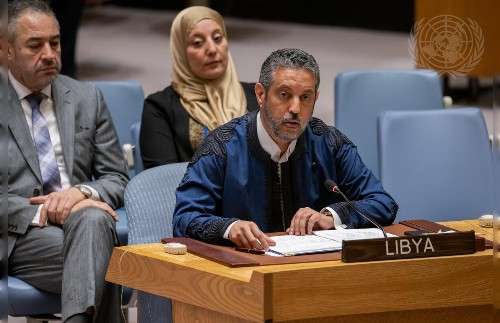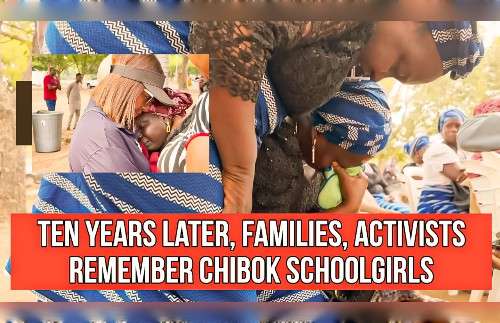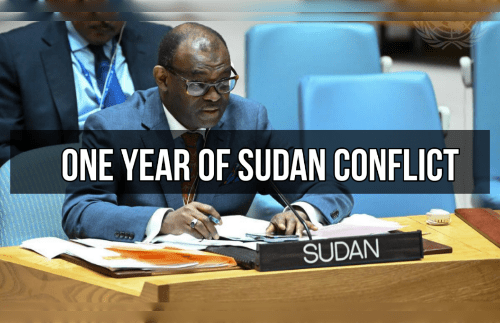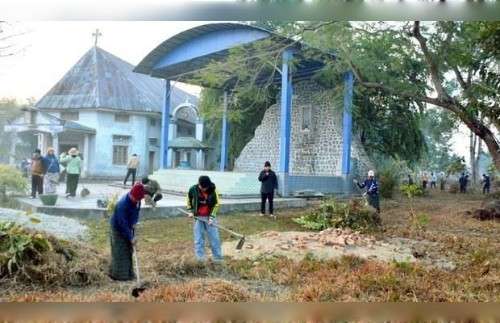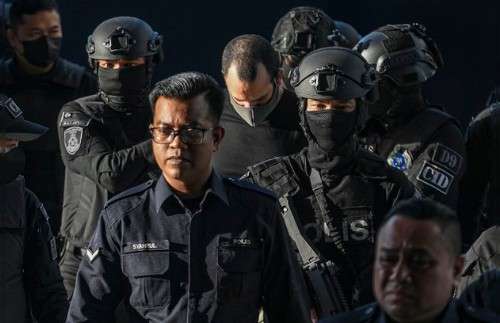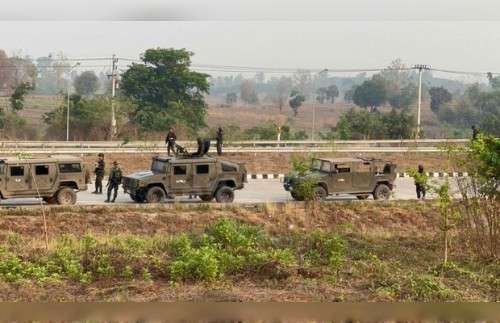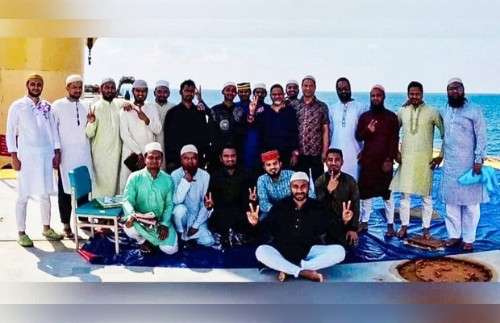
Tibetans living outside their China-ruled homeland are set to hold a vote on Jan. 3 to seat a new political leader, or Sikyong, for their Dharamsala, India-based government-in-exile as the current officeholder’s five-year term in office nears its end.
Lobsang Sangay, a Harvard-trained scholar of law, has now served two consecutive five-year terms as Sikyong of the Central Tibetan Administration (CTA) since 2011 and will leave that post when his present term ends in May 2021.
The Jan. 3 vote for Sikyong and for members of the 17th Tibetan parliament in exile will be followed by a second, and final, round of voting on April 11, the CTA’s Chief Election Commission says.
The Tibetan diaspora is estimated to include about 150,000 people living in 40 countries. Among these, 82,818 registered to vote in the 2011 election, of whom 48,482 voted, and 90,877 registered for the election in 2016, of whom 59,853 turned out to vote.
The number of Tibetan exiles registering to vote has climbed in recent years, but some have voiced concern over the possible impact of COVID-19 related restrictions on public balloting held in the many countries in Europe, North America, India, and elsewhere in Asia where Tibetans have made their home after fleeing China’s rule.
Formed in 1959, Tibet’s government in exile—now called the Central Tibetan Administration—has executive, judiciary, and legislative branches, with candidates for the office of Sikyong, or president, elected since 2011 by popular vote.
CTA leaders, formerly called Kalon Tripa, were previously appointed by Tibet’s exiled spiritual leader the Dalai Lama.
The Tibetan Policy and Support Act 2020, passed in the U.S. Congress on Monday and now waiting to be signed into law by President Donald Trump, commends Tibetan exile communities around the world for adopting through the CTA “a system of self-governance with democratic institutions.”
“[But] the Dalai Lama has said that the CTA will cease to exist once a negotiated settlement [with China] has been achieved that allows Tibetans to freely enjoy their culture, religion, and language in Tibet,” the Act points out.
‘Significant signal to Beijing’
Reached for comment on Monday, current CTA president Sikyong Lobsang Sangay welcomed U.S. acknowledgement of the Central Tibetan Administration and its leaders, calling the move a “significant signal to Beijing,” which had strongly objected to a Nov. 20 visit by Sangay to the White House to meet with administration officials.
Formerly an independent nation, Tibet was invaded and incorporated into China by force nearly 70 years ago, following which the Dalai Lama and thousands of his followers fled into exile in in India and other countries around the world.
Divisions persist in the Tibetan exile community over how best to advance the rights and freedoms of Tibetans living in China, with some calling for a restoration of the independence lost when Chinese troops marched into Tibet in 1950.
The CTA and Tibet’s spiritual leader the Dalai Lama have instead adopted a policy approach called the Middle Way, which accepts Tibet’s present status as a part of China but urges greater cultural and religious freedoms, including strengthened language rights, for Tibetans living under Beijing’s rule.
Nine rounds of talks on greater autonomy in Tibetan areas of China were held between high-level Chinese officials and envoys of the Dalai Lama beginning in 2002, but stalled in 2010 and were never resumed.
Candidates support Middle Way
Speaking in interviews with RFA in November and December, six candidates for the office of Sikyong in this year’s vote affirmed their support for the Middle Way, with one—Acharya Yeshi Phuntsok, now the deputy speaker of Tibet’s exile parliament—saying the collapse of talks with China has left a “gap that must be filled.”
“In order to revive the engagement process with the Chinese government, we must involve individuals and governments that are trusted both by China and Tibet,” Phuntsok said. “For instance, there are many Indians I have met during my years of service who are considered reliable by both the Chinese government and the Tibetan [exile] administration.”
Dongchung Ngodup, another candidate and currently the Dalai Lama’s representative in the Indian capital New Delhi, said that the Dalai Lama’s Middle Way policy seeking greater autonomy for the Tibetan people doesn’t violate guarantees provided to ethnic minority groups by China’s own constitution “and doesn’t threaten China’s national interest.”
Though official talks with China have stalled, “back channel discussions with China have been taking place, and we must work hard to revive the dialogue process,” said Kelsang Dorjee Aukatsang, a former representative of the Dalai Lama to North America also running for the post of Sikyong.
“Therefore we must use the freedoms that we have in the Free World to pressure the Chinese government by exploring connections with all kinds of other movements and campaigns to help further our cause,” he said.
Gyari Dolma, a former CTA Home Minister, former deputy speaker of Tibet’s exile parliament, and first woman to run as a candidate for Sikyong, also voiced her firm commitment to the Middle Way, saying that her Kashag, or cabinet, will “vigorously pursue the revival of the engagement process” if she is elected.
“[But] I anticipate an inevitable rethinking of the Middle Way approach if Beijing continues to dismiss the administration’s efforts to resume Sino-Tibetan dialogue,” she said.
“There will be many ways to communicate with the Chinese government,” said candidate Lobsang Nyandak, a former representative of the Dalai Lama to North America and currently president of the New York-based Tibet Fund, adding that “international experts” and persons representing diverse political ideologies could be asked to join a task force in support.
“We must stick to the Middle Way approach proposed by His Holiness the Dalai Lama to peacefully resolve the issue of Tibet and bring about stability and co-existence between the Tibetan and Chinese peoples based on equality and mutual cooperation,” Nyandak said.
Penpa Tsering, a former speaker of Tibet’s exile parliament now running for office as Sikyong, added that to advance the cause of talks, Tibetan exile representatives should now reach out to Chinese officials who have voiced support for resolving the Tibet issue, and to Chinese businessmen with connections to the Chinese government.
“We have to make the best use of the channels that have already been created and be open to creating new avenues of approach in the times to come,” he said.
No alternative policies proposed
None of the six candidates interviewed proposed alternative policies for what they might do if talks with China continue to stall.
Gonpo Dhondup—president of the exile Tibetan Young Congress, which advocates for Tibet’s independence—told RFA in an earlier report that debates and discussions around the issue of Tibet’s status constantly take place in Tibetan exile communities, “as would happen in any other democratic country.”
”There are some people who do challenge the Middle Way policy, and they are then attacked by certain other people for appearing to oppose His Holiness [the Dalai Lama], as if they lacked faith in His Holiness.”
“But I don’t think they lack faith in His Holiness. They just don’t trust the Chinese government,” Dhondup said.
Reported by Kalden Lodoe, Palden Gyal, Dorjee Damdul, and Tashi Wangchuk for RFA’s Tibetan Service. Translated by Tenzin Dickyi. Written in English by Richard Finney.
Copyright © 1998-2020, RFA. Used with the permission of Radio Free Asia, 2025 M St. NW, Suite 300, Washington DC 20036. https://www.rfa.org
UN Security Council Meets to Discuss Situation in Libya
Zimbabwe Seeks to Profit Through Processing Lithium
Junta Shelling, Airstrikes Kill 25 Rohingyas in Myanmar’s Rakhine State
Ten Years Later, Families, Activists Remember Chibok Schoolgirls
Ukrainian, Afghan Students Sponsored by Private California School
One Year of Sudan Conflict
Wildfire Destroys Prized Mushrooms, Income Source for Tibetans
Ukrainians Honored for Their Work to Save Animals During War
Subscribe Our You Tube Channel
Fighting Fake News
Fighting Lies





